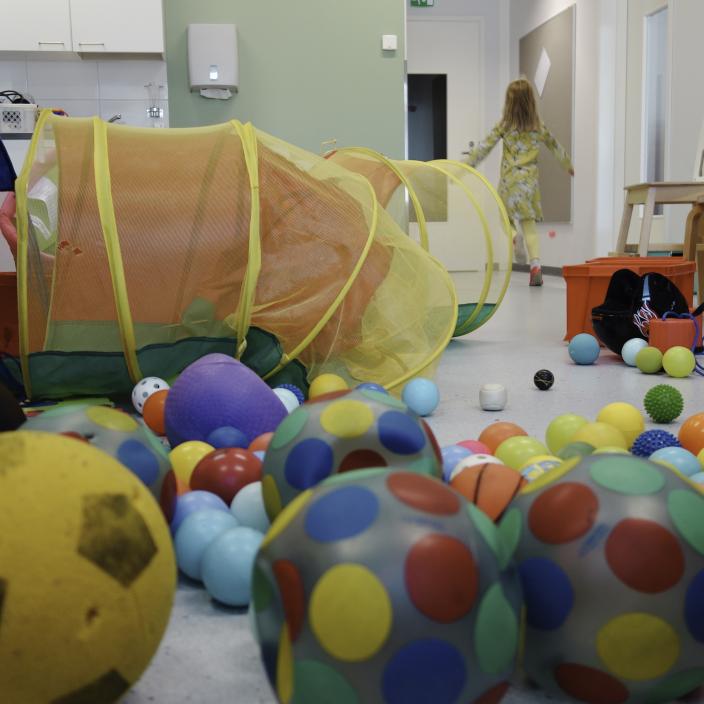Group-specific support
Learning support is primarily organized on a group-by-group basis. All children have the right to do so.
The support provided in the group includes:
- general remedial teaching provided by the teacher
- remedial teaching in the language of instruction provided by the teacher
- teaching provided by a special education teacher in connection with other teaching.
Group-specific support is provided flexibly and systematically throughout the school year. No administrative decision is made on it.
Child-specific support measures
When the support provided in the group is not enough, it is supplemented with child-specific support measures. They are based on the child's individual needs. The support is provided regularly and over a long period of time. Child-specific support measures are primarily organized in the child's own pre-primary education group, taking into account the child's best interests.
Child-specific support measures:
- regular teaching provided by a special education teacher, partly in small groups and in connection with other teaching
- full-time teaching by a special education teacher in a small group
- interpretation services
- assistant services
- assistive devices
Other forms of support
- Helppi team in early childhood education and care.
- Sisukas - A foster child in early childhood education and care and pre-primary education.
- These forms of support are explained on the page Support in early childhood education and care
Student welfare in pre-primary education
Your child in pre-primary education has the right to the student welfare services they need free of charge.
Student welfare services include maternity and child health clinic services for the age group and the services of the social worker and psychologist.
The maternity and child health clinic services are provided by your local child health clinic which is determined by the child’s home address
Find the contact information for maternity and child health clinics on Varha.
School social workers in pre-primary education
The school social worker provides your child with support and help when the child has problems with issues such as attendance in pre-primary education or friendships. The school social worker also supports the child during changes and crises in the family. Discussions with the school social worker are voluntary and confidential.
As a rule, you need to book an appointment to see the school social worker, and the service is free of charge. You can contact the social workers by phone or text message or book an appointment directly through the school’s social worker. The school social worker’s appointments mainly take place in the day-care centre’s facilities during its opening hours.
See contact details for school social workers on Varha website.
School psychologist in early childhood education and care
The school psychologist provides your child with support in matters related to well-being, participation in pre-primary education and learning. In particular, school psychologists provide support when, despite the support measures, the child’s learning challenges have still not been solved. The possible need for a school psychologist’s examination will be assessed together if necessary.
School psychologists provide help with mental health and crises as well as emotional challenges.
The support of the school psychologist is voluntary and confidential, and the appointments mainly take place at the day-care centre during the opening hours of the pre-primary care centre. Contact the school psychologist if you need support.
See contact details for school psychologists on Varha website.
